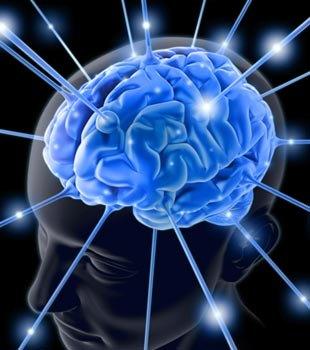The Brain Fitness and Exercise?

Is there Science Behind the Growing Brain Fitness Industry?
By [https://EzineArticles.com/expert/Alvaro_Fernandez/98665]Alvaro Fernandez

To address this question, we interview today Dr. Elkhonon Goldberg, one of the earliest proponents of the Brain Fitness and Exercise field. He is a clinical professor of neurology at New York University School of Medicine, and author of The Executive Brain: Frontal Lobes and the Civilized Mind and The Wisdom Paradox: How Your Mind Can Grow Stronger As Your Brain Grows Older.
Alvaro Fernandez (AF): We are witnessing the birth of a whole new brain training industry. I understand that one of the key foundations is the new neuroimaging techniques we have today.

Elkhonon Goldberg (EG): Precisely. It is often said that new neuroimaging methods have changed neuroscience in the same way that the telescope changed astronomy. We use MRI, PET, SPECT, fMRI and MEG. None of these techniques is perfect, but used properly they provide us with a much better understanding than we had only 30 years ago.
AF: Please tell us about your main research and practical interests.
EG: As you can see in my papers and books, I will categorize them in 3 areas-a) computer-based cognitive training/ Brain Fitness overall, b) healthy cognitive aging, and c) frontal lobes and executive functions.

First, Cognitive Training/ Brain Fitness. Rigorous and targeted cognitive training has been used in clinical practice for many years. It can help improve memory, attention, confidence and competence, reasoning skills, even how to reduce anxiety and deal with uncomfortable situations.
Second, healthy cognitive aging. The brain evolves as we age. Some areas, such as pattern recognition, get better with age. Some require extra-workouts in order to reduce "chinks in the armor" and increase neuroprotection through the Cognitive Reserve. Hence, the need for targeted cognitive training.

Third, the Frontal lobes and executive functions, which permeate seemingly very different problems such as ADHD and Alzheimer's, are critical for our identity and successful daily functioning so they require extra attention.
AF: Please tell us more about what the Frontal Lobes are.
EG: We researchers typically call them the Executive Brain. The prefrontal cortex is young by evolutionary terms, and is the brain area critical to adapt to new situations, plan for the future, and self-regulate our actions in order to achieve long-term objectives. We could say that that part of the brain, right behind our forehead, acts as the conductor of an orchestra, directing and integrating the work of other parts of the brain.

I provide a good example in The Executive Brain, where I explain how I was able to organize my escape from Russia into the US.
Significantly, the pathways that connect the frontal lobes with the rest of the brain are slow to mature, reaching full operational state between ages 18 and 30, or maybe even later. And, given that they are not as hard-wired as other parts of the brain, they are typically the first areas to decline.
AF: And is that one of the areas where cognitive training/ Brain Fitness Programs can help.

EG: Yes. Most programs I have seen so far are better at training other brain areas, which are also very important, but we are getting there. Some of the spectacular research and clinical findings of the last 20 years that remain to be discovered by the population at large are that we enjoy lifelong brain plasticity and neurogenesis, that the rate of development of new neurons can be influenced by cognitive activities, and that intense mental challenges provide extra resistance to aging.
Exercising our brains systematically ways is as important as exercising our bodies. In my experience, "Use it or lose it" should really be "Use it and get more of it". And computer-based programs are proving to be a great vehicle for that "Use It".

AF: We have been talking mostly about cognition or "thinking". What about the role of emotions, as shown by the great research by Damasio?
EG: Great question. Until recently, emotions were simply not relevant for many cognitive neuroscientists. That is changing, and there is more and more research looking into what makes us "uniquely human": attributes like motivation, judgment, empathy, insight into others, emotional self-regulation.
AF: how does that link into the role of art? Can we consider art creation and appreciation as brain exercise?

EG: This is still open territory, but my personal opinion is that art's main purpose is in fact exercising brains. I wouldn't be surprised if piano lessons were shown to improve overall sharpness and lucidity. Any activity changes the brain, and systematic programs can be designed to lead that change in a better way than random daily activities. Learning a complex skill such as learning the piano helps train and develop some parts of the brain. Well-designed computer-programs help train and develop other parts.
AF: Dr. Goldberg, many thanks for your time.

EG: My pleasure.
Alvaro Fernandez is the CEO and Co-Founder of SharpBrains, which provides the latest science-based information for [http://www.sharpbrains.com/blog/2007/04/03/brain-exercise-faqs/]Brain Exercise and [http://www.sharpbrains.com]Brain Health, and has been recognized by Scientific American Mind, CBS, Forbes, and more. Alvaro holds an MA in Education and MBA from Stanford University, and teaches The Science of Brain Health at UC-Berkeley Lifelong Learning Institute.
Copyright (c) 2007 SharpBrains
Article Source: [http://EzineArticles.com/?Is-there-Science-Behind-the-Growing-Brain-Fitness-Industry?&id=682337] Is there Science Behind the Growing Brain Fitness Industry?

Advertise on APSense
This advertising space is available.
Post Your Ad Here
Post Your Ad Here





Comments (6)
Business-Network Hom...6
Business.Network.HomeWorker
The Brain Fitness and Exercise? 'walking' for 20 minutes each day for 21 days?
Is there Science Behind the Growing Brain Fitness Industry...
.apsense.com/article/the-brain-fitness-and-exercise.html
Income MARKETING Opp...11
EZWORKSYSTEMS
Paradox: How Your Mind Can Grow Stronger
As Your Brain Grows Older,
The Executive Brain, book by author,
Dr. Elkhonon Goldberg,
The Brain Fitness and Exercise?
youtu.be/uAmAoI1fuTg .
...Is there Science Behind the Growing Brain Fitness Industry?
#cognitive training walking,
#science of brain health,
#change the brain,
#reasoning skills,
#motivation empathy insight,
#brain fitness industry,
#exercising our brains,
#brain fitness program,
#your mind can grow stronger,
#plan f
MomsBLOGS WORKatHOME...8
MOMS.blog.
Hello World! 'like' Thanks!
The physical and social stimulation bolstered their cognitive wellbeing...
.theguardian.com/education/2016/jun/18/how-physical-exercise-makes-your-brain-work-better
Warren Contreras14
Old Retired Guy
The guy in that last image has it dialed in.
Franto Hruz16
Online Income Systems Development
Join the Mind Exploration & Development Group on Apsense - Think Rational
MomsBLOGS WORKatHOME...8
MOMS.blog.
work. To build up your biceps you can’t avoid flexing them. When it comes to your brain, an oblique approach can be surprisingly effective. In particular, working your body’s muscles can actually benefit your grey matter. theguardian.com/